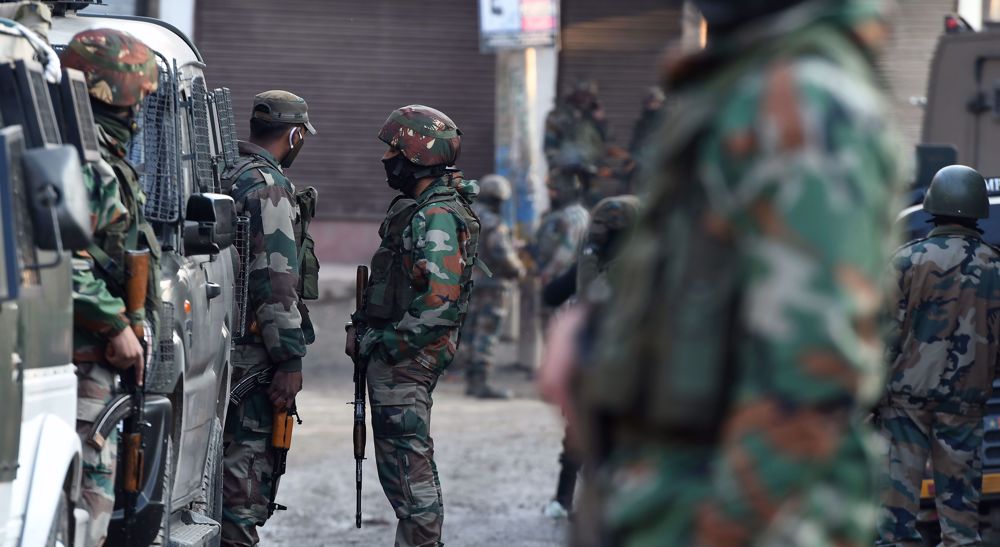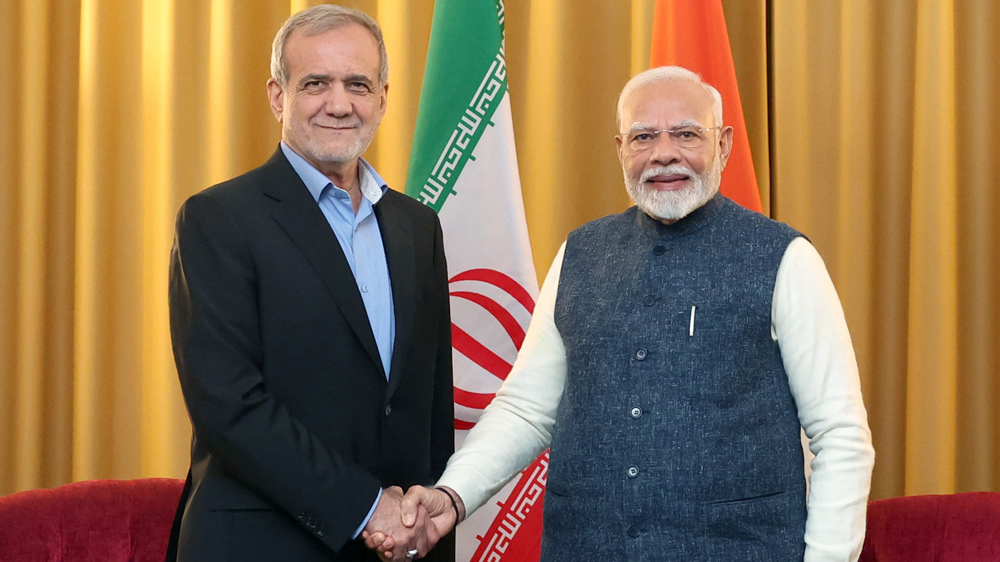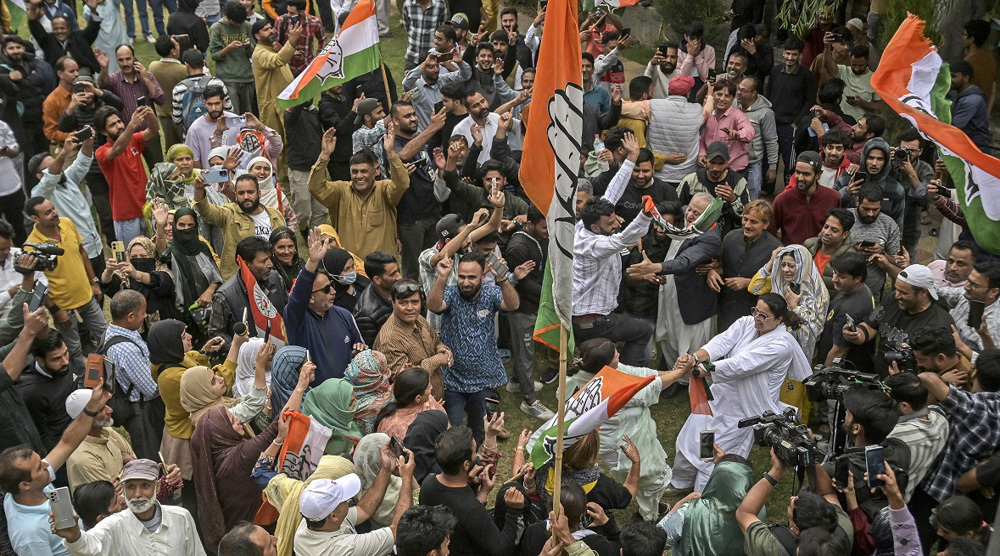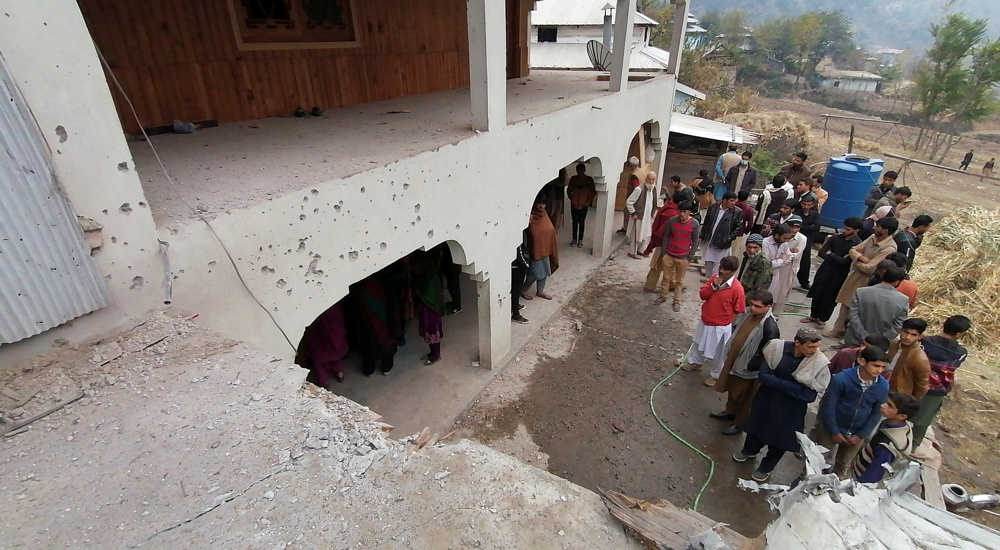India fumes as OIC urges rescission of ‘illegal’ Kashmir move
India has been angered by a resolution recently passed by the Organization of Islamic Cooperation (OIC) that rejects New Delhi's decision to revoke Kashmir's autonomy.
The OIC resolution, which was passed during a session of the Council of Foreign Ministers (CFM) of the OIC in the Nigerien capital, Niamey, rejected the Indian decision and demanded that "India rescind its illegal steps" regarding the disputed Kashmir.
"[The OIC] rejects the illegal and unilateral actions by India on August 5, 2019 to change the internationally recognized disputed status of the Indian-occupied Jammu and Kashmir, and demands that India rescind its illegal steps," the 57-member grouping of Muslim nations said.
India's Ministry of External Affairs on Sunday rejected the resolution by the Muslim bloc, saying "the OIC has no locus standi in matters strictly internal to India."
"We strongly and categorically reject the factually incorrect, gratuitous and unwarranted references to India in resolutions" adopted by the OIC, the ministry said.
Pakistan's Foreign Office late on Monday rejected "the untenable statement" by the Indian ministry, saying the OIC was the second-largest international organization after the United Nations (UN).
"Rather than dismissing the international community's concerns as reflected in the OIC Resolution, India would be well-advised to pay heed and stop its state-terrorism in Indian Illegally Occupied Jammu and Kashmir (IIOJK)," the statement read.
"The OIC Resolution is further proof that India can neither hide its gross and systemic violations of human rights of the Kashmiri people and the denial of their inalienable right to self-determination nor can it escape international censure of its egregious behavior."
Last August, India stripped the Muslim-majority region of its autonomy and brought it under the direct rule of New Delhi. Since then, it has passed and amended a number of laws that Kashmiris fear are aimed at bringing demographic change in the disputed Himalayan territory. Newly-introduced domicile laws by India also allow non-Kashmiris to take jobs and buy properties in Kashmir.
The Indian government's move to strip Kashmir of the special autonomy it had had for seven decades prompted a furious response from arch-rival Pakistan.
Kashmir has been split between India and Pakistan since their partition in 1947. The countries have fought three wars over the territory.
India has stationed more than half a million soldiers in Kashmir to quell a pro-independence uprising that first erupted in 1989.
India and Pakistan have also frequently exchanged heavy fire across the militarized, de facto border in the disputed Kashmir Valley.
India accuses Pakistan of arming and training militants and allowing them across the restive frontier in an attempt to launch attacks. Pakistan denies the allegation.
Thousands of people have been killed in the unrest in Kashmir over the past two decades.
New Delhi's decision sparked a new wave of tensions over the region.
VIDEO | Intl. day to end anti-women violence: Female victims of Israeli attacks on Gaza, Lebanon remembered
Leader: Arrest warrant not enough, Netanyahu must be executed
VIDEO | Iraqi fighters conduct fresh retaliatory attacks on vital Israeli targets
Gaza hospital chief calls for help amid Israel’s ‘extermination campaign’
‘Israel delusional’: Hamas says US ‘full support’ enabled genocide, urges Biden to ‘atone’
Nov. 24: ‘Axis of Resistance’ operations against Israeli occupation
Iran’s IRGC Ground Force, Azerbaijani army kick off joint military drill
VIDEO | Security officers injured, one person killed in Amman shooting

















 This makes it easy to access the Press TV website
This makes it easy to access the Press TV website